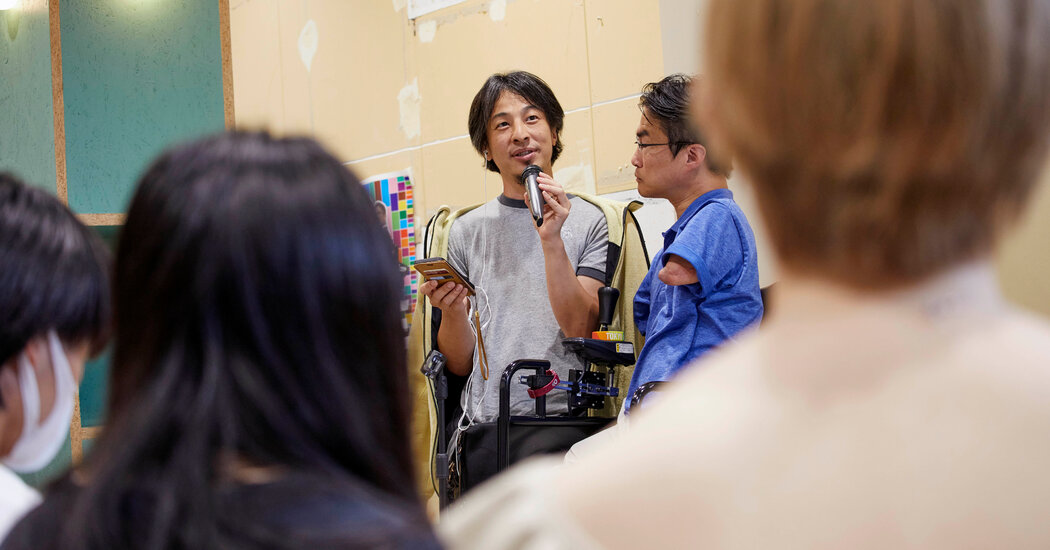In 2004, 2chan went mainstream with the publication of “Train Man,” a collection of board posts that allegedly showed how users helped a hapless nerd pursue the woman of his dreams. The story became a bestseller, a blockbuster and a hit TV show. It made 2chan the most visited site in Japan.
While most users discussed hobbies or complained about work, others threatened murder, posted bomb threats, and spawned reckless conspiracy theories. A deluge of posts from far-right users denied Japan’s war crimes and contributed to a nationwide rise in anti-Korean hatred.
Because Mr. Nishimura profited heavily from the site — earning as much as $100,000 a month — he also became adept at dodging fees. He says he was sued more than 100 times for posts on 2chan. He refused to pay at least $1 million in court rulings, citing the lack of criminal penalties for doing so.
“If I were to be put to death for not paying, I would. But nothing will happen to me if I don’t pay, so I won’t,” he told reporters after a 2007 court hearing.
For Mr. Nishimura, dodging the lawsuits — like everything else related to 2chan — was “just a game,” said Eichiro Fukami, who worked closely with Mr. Nishimura on 2chan-related projects for many years. Mr. Fukami successfully sued Mr. Nishimura for libel after Mr. Nishimura accused him of embezzlement.
Mr. Nishimura, he said, spent countless hours devising ways to get around laws and regulations. The servers used by 2chan were located in the United States, outside the scope of Japanese law. At one point, Mr. Nishimura considered declaring the site a religious organization in order to get tax exemption, Mr. Fukami said.
“He always moved on the edge of the rules,” he added.
As 2chan’s reputation costs increased, Mr. Nishimura to distance himself. In early 2009, he suddenly announced that he had sold the site and cut his connections. He wrote a book called “The Reason I Threw Away 2chan.”

